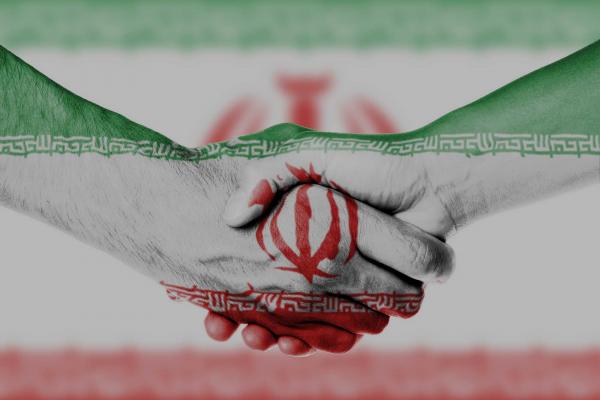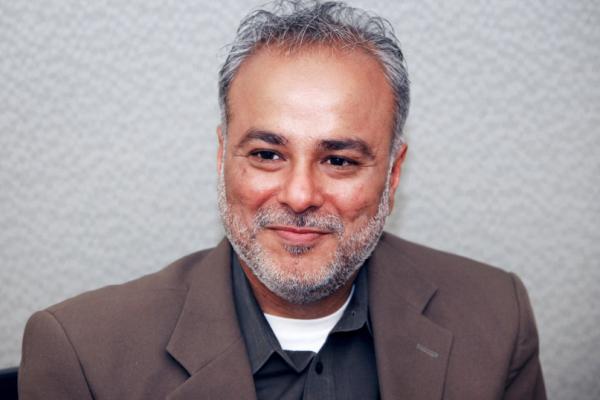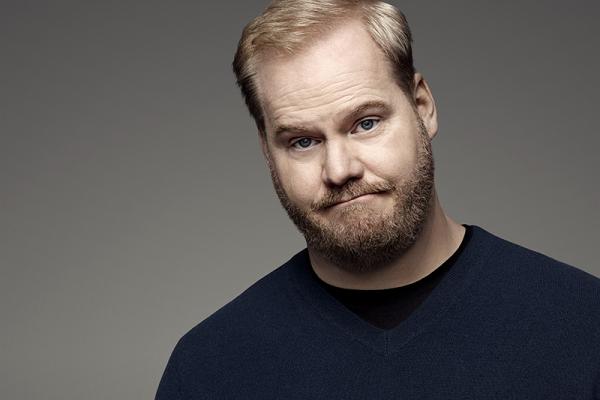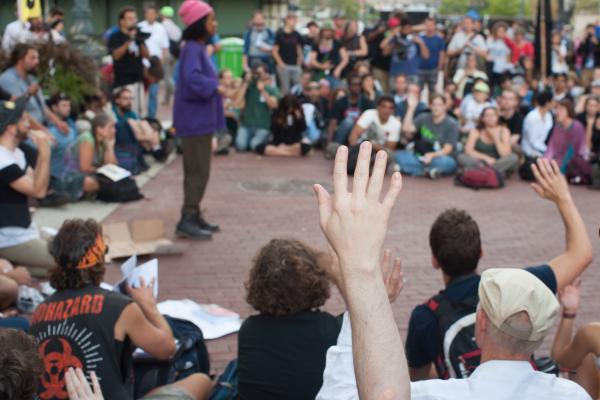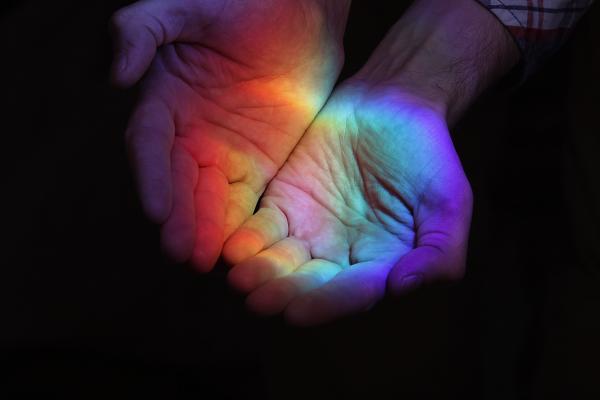National Minority Mental Health Awareness month is upon us in the U.S., and never has the scope and impact of mental health issues threatened to affect the long-term security of our country and world than now.
This year, the UN Office for the Coordination of Humanitarian Affairs estimates that 10.8 million people are affected by the conflict in Syria, with 4 million refugees having fled the country. This is the largest refugee population coming out of any one conflict in over a generation. Similarly, in early 2015, UNHCR estimated that the total population of concern, due to the conflict in Iraq, exceeded 3 million people. Millions of people have experienced the unimaginable trauma of political and religious conflict and persecution in the Middle East, especially women, whom the Iraqi Ministry of Health determined were disproportionately affected by mental health illness due to the recent conflict. The scale and depth of the trauma demands a multi-faith, multi-sector, multi-discipline response, before it is too late.
We have a deal. And many of us in the faith community are relieved.
After months of negotiations, missing deadlines, and many stressful final days in Vienna, Iran has agreed to halt its nuclear weapons program for a decade or more, and allow credible international agencies to significantly monitor its behavior. In return, sanctions against Iran will be lifted once it demonstrates compliance on its end. Meanwhile, the West is hopeful that a younger Iranian generation might begin to liberalize the country, prompting a fuller entry into the modern world over the next 10 years. That hope remains to be seen.
Many of us in the faith community have called for diplomacy instead of the only plausible alternative: war with Iran.
A recently released Gallup poll found “tidal shifts” over the past 60 years in Americans’ willingness to support a well-qualified black, female, Catholic, or Jewish candidate for president.
But the study also found that 60 percent of Americans would be willing to vote for a president who was a “generally well-qualified person who happened to be Muslim.”
Throughout the month of Ramadan, which concludes July 16, American Muslims have been serving their communities — including raising more than $80,000 for black churches burned across the South and serving 1,000 homeless on Skid Row in Los Angeles — public service that they are called by their faith to do. But as they look forward to Eid al-Fitr, the three-day celebration beginning Friday, they are also wondering whether Americans are more willing to accept their service.
“If the 60 percent is to be used as a proxy of acceptance of Muslims, I am encouraged by an upward trajectory,” wrote Saud Anwar, the mayor of South Windsor, Conn., and that state’s first Muslim mayor.
Anwar said he believes that “religious labels are less critical” at the local level, where “people have a better opportunity to know a candidate and thus vote based on capacity to do the job and performance.”
In national elections, he said, “the labels may become more important for people.”
Jokes about somebody’s religious beliefs are often duds.
But jokes about your own religious beliefs somehow push the line between funny and offensive, making room for laughter and, occasionally, sharp commentary.
That’s the philosophy behind The Jim Gaffigan Show, a new series premiering on TVLand on July 15 featuring Jim Gaffigan — the popular stand-up comedian known for his Comedy Central special and the books Dad Is Fat and Food: A Love Story — and his wife, Jeannie.
The husband-and-wife team say their Catholicism — with its daily prayer, weekly Mass, and rosary recitation with their five kids — is such a part of their own lives that not including it in their work would be dishonest.
“It’s part of the story,” said Jeannie Gaffigan, an executive producer of the new show and Jim’s frequent collaborator.
I was raised in Atlanta during the heyday of the civil rights era. I went to high school with some of Martin Luther King, Jr.’s children. And I didn’t know there was a racial problem in my city. Because for me and my people there wasn’t. It was somebody else’s problem. Across town. Somewhere else.
The black maids and gardeners rode a tidal wave into my white neighborhood each morning, tended babies, fried chicken, and manicured lawns. And then the tide washed them back out again. We didn’t often ask where they landed for the night and whether it was as sumptuous as our digs, or whether their neighborhoods were even safe. We just dropped our bath towels on the floor and figured that somebody would pick them up again in the morning. Life was good.
From the remove of 40 years and 600 miles, I see it differently. But it took more than time and distance to reckon with my own cluelessness about race. It took what it always takes for barriers to fall between “us” and “them” — getting to know some of “them.” I’ve gotten as far as being able to name that I am on one side of many different divides, including the dinner counter at the Mission, and I’m usually on the less-shitty side. And it’s through no merit of my own. In fact it’s where people like me, white and privileged, have long been and have little questioned.
In the past few years, a new era of civil rights organizing has emerged out of the depths of tragedy and despair. The list of names of young African Americans who have died at the hand of police, out-of-control vigilantes, and hate-filled white terrorists has fostered profound lament and intense anger. The simple phrase, “Black Lives Matter” has galvanized activism, mobilizing, and organizing.
This new civil rights battle includes legislative battles at state houses like South Carolina, leading to the removal of the Confederate flag from the grounds. There is work to do in D.C. as well. Yet the real front of this new era will be on the corporate scene, on Wall Street and with economic power brokers and corporations. It is time to go “over the heads” of politicians and enter into dialogue and debate with corporations over the value and dignity of dark bodies, and how to reconstruct a moral economy that is not profiting off of people of color.
“I believe Jesus would. I don’t have any verse in scripture. … I believe Jesus would approve gay marriage, but that’s just my own personal belief. I think Jesus would encourage any love affair if it was honest and sincere and was not damaging to anyone else, and I don’t see that gay marriage damages anyone else…” —Jimmy Carter, from his interview with Huffington Post Live
I grew up in Texas as a churchgoing Baptist. I memorized Bible verses as part of my “sword drills,” went to church camp, took part in the clown ministry and even helped in the nursery.
Then I was kicked out at age seventeen for asking too many questions. My youth minister actually threw a Bible at my head and, in a less than nuanced way, invited me to move on, lest I contaminate the minds and hearts of my friends with my doubt.
Some of my questions had to do with their biblical interpretation, which was literal — and their assertion that the texts we were memorizing were the perfect, infallible Word of God, straight from the mind of the Divine to the paper on which it was written.
I had questions.
The families arrive at the center after having traveled for weeks. Their bodies are completely filthy dirty. Their clothing and shoes have a darkened, grey, muddy appearance. In some cases, their clothing is still wet from having crossed the Rio Grande River. Since June of last year, large groups of refugees, mostly mothers with a child or two, walk through the door of the Humanitarian Respite Center at Sacred Heart Church in McAllen, Texas, their faces full of joyful tears as they experience the warm and welcoming faces of the many volunteers applauding, shouting out, “Bienvenidos!” “Welcome!”
The refugee families just spent several days at the Border Patrol Processing Station – the “Hielera” – the “Ice Box” as the refugees call it, because it is freezing there. While in this processing facility, the refugees are kept in cells, where they wait fearfully for what is to become of them.
Nearly 150 human rights lawyers and activists have been detained and interrogated by the Chinese government in a nation-wide sweep this week, CNN reports.
At least 124 of those detained have now been released, but the actions have prompted condemnation from national governments including the United States. At least 22 reportedly still remain in custody.

